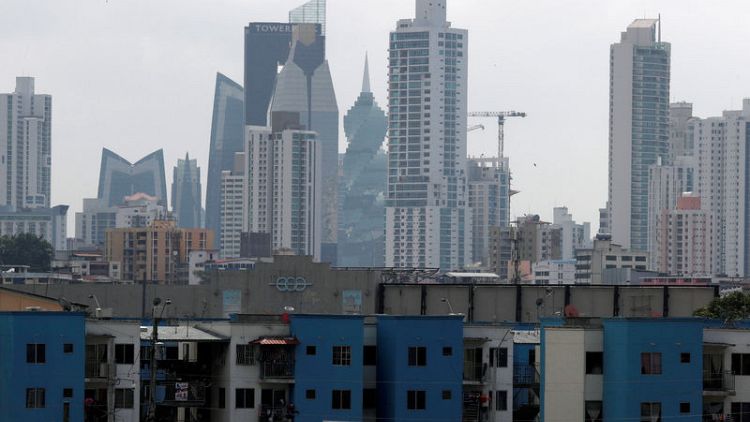By Stefanie Eschenbacher and Elida Moreno
PANAMA CITY (Reuters) - Panama elects a new president on Sunday who will inherit Latin America's fastest-growing economy and rising pressure to reduce inequality in the financial hub that straddles two oceans.
Promises to improve the lives of the rural and indigenous poor have dominated campaigning in the isthmus nation of 4 million people bisected by its famous shipping canal.
Though a clear front-runner has emerged, many Panamanians have yet to decide whom to vote for, and scepticism about the prospects for change is palpable in poor areas away from the glittering skyscrapers of Panama City's financial centre.
Political veteran Laurentio "Nito" Cortizo, 66-year-old candidate of the moderate left Democratic Revolutionary Party, is favourite to succeed President Juan Carlos Varela, who is barred by the law from seeking immediate re-election.
A former agricultural minister, Cortizo has wooed the country's 2.8 million voters with promises to improve government services like water and healthcare, and fight corruption.
"Panama is growing economically, but this growth has not benefited development," Cortizo said at a recent campaign event. "Here, a few have a lot, and a lot have little."
His main challenger is Romulo Roux of the centre-right Democratic Change party, who is backed by ex-President Ricardo Martinelli and has vowed to make management of Panama's public pensions more transparent amid fears for their sustainability.
Since the United States ousted dictator Manuel Noriega in 1989, Panamanians have never given a political party back-to-back terms in office. Varela's popularity has fallen away and his Panamenista Party's candidate is well off the pace.
The perpetual change is a response to what Liliana Barrigon, a young mother living in Kuna Nega, an impoverished, heavily indigenous suburb on the capital's northern rim, called broken promises.
"They find us when they want votes every couple of years, but then they forget us," Barrigon said.
Powered by the financial sector, canal revenues and infrastructure spending, Panama's economy has grown at an average annual rate of 5.3 percent under Varela.
DASHED HOPES
This year the World Bank forecasts the economy will grow 6 percent, surpassing every other country in Latin America.
The bank says growth has helped cut the share of people living on less than $5.50 (£4.2) a day from 15.4 percent to 14.1 percent between 2015 and 2017, the latest years on record.
Still, the figures showed a slight uptick in the numbers living below $1.90 a day during 2016-2017.
And nearly one in four of the population has an income less than half of the median level, according to a study by the United Nations Economic Commission for Latin America and the Caribbean - the highest discrepancy in 18 countries it reviewed.
Both at home and abroad, Panama has become synonymous as a place for the rich and powerful to hide their wealth, especially since the 2016 publication of offshore financial data that became known as the Panama Papers scandal.
"We can't judge the rich because they are rich," said Ricardo Mosquera, who recycles waste in Panama City. "But this new government should work for everyone."
Poverty is most prevalent in rural areas and indigenous communities, many of which lack access to schools, drinking water, adequate healthcare and sanitation.
Kuna Nega's houses are mostly patched together from wood and metal. Mismatched children's sandals scavenged from a sprawling dump nearby are sold on the roadside. Some locals consider porridge with a heaped spoon of sugar a decent meal.
On a recent Sunday afternoon, many in Kuna Nega were wearing clothes sporting the logos of political parties that were handed out by activists in a last push for votes. The clothes were new, and much nicer than those from the dump, residents said.
Just a few miles from downtown Panama City, water supply has become a worry in Kuna Nega since the small river where people used to bathe and wash clothes gradually dried up.
Aribel Herrera, a mother of five, said she often spent the whole day in search of water from gas stations in the city.
"We had so many hopes," she said.
(Reporting by Stefanie Eschenbacher and Elida Moreno in Panama City; editing by Dave Graham and Cynthia Osterman)
